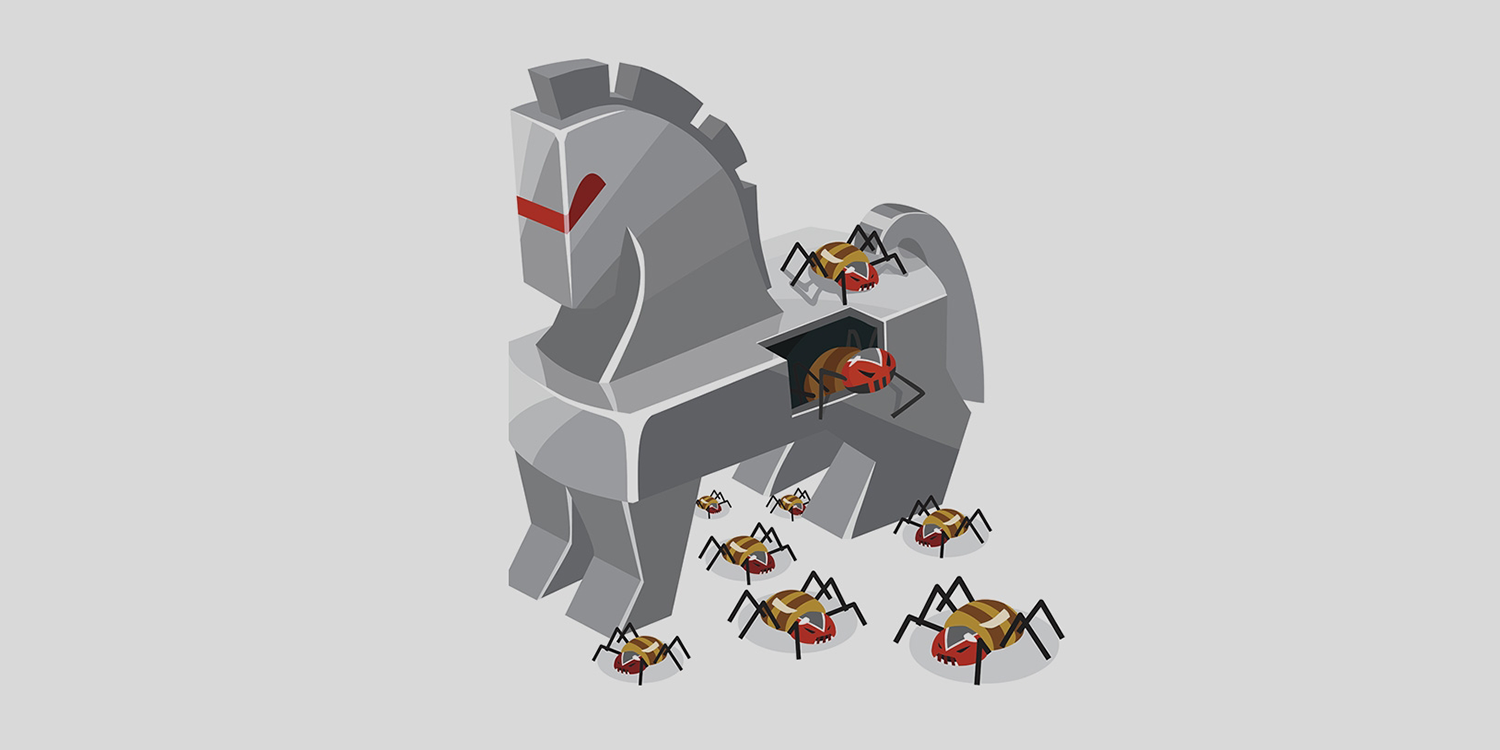You may have heard the term Trojan horse before, but not be fully aware of the problems the malware can cause.
What is a Trojan horse?
A Trojan horse is a malicious program disguised as legitimate software. Trojan horses pretend to provide helpful or fun features, such as silly images sent through emails, PDF to Excel conversion software, or pirated movies. However, some of these “free resources” may contain malware that can take over your computer. The Trojan horse will then download malicious software in the background.
The term Trojan horse for malware originates from the Greek story of the Trojan war. The Greeks offered a wooden horse to the Trojans as a peace offering. However, the Greeks hid soldiers inside the horse. The Trojans wheeled the horse behind their city gates. Afterward, the Greek soldiers climbed out of the horse and captured Troy.
What types of malware are hidden in Trojan horses?
- Remote access: The malware will take complete control of the user’s system.
- Data sending: The malware will record sensitive data to send to hackers through keylogging software, such as login information and credit card numbers.
- Destructive: The malware will corrupt and delete data on your hard drive.
- Proxy: The malware will use the computer as part of its network for launching attacks on other victims.
- File Transfer Protocol (FTP): The attack will use file transfer software to connect to a computer by opening a port.
- Security Software Disabling: The malware will shut off your firewall and anti-virus program.
- Denial of Service: The malware will bring down the network by flooding it with spam traffic.
How can you prevent Trojan horse installations?
- Run scans of your computer every week. Premium versions of trusted anti-virus software will run regular scans on your computer and monitor for threats in the background. Also, make sure to keep the software up to date, since the program will provide patches as new threats emerge.
- Update your operating system regularly
- Run backups of your device and shared drives regularly
- Do not click on any strange-looking links and attachments, especially from unknown senders.
- Use tough passwords and store them in a password manager.
- Do not visit suspicious websites, such as media pirating, porn, and peer-to-peer file transfer. Fortunately, your firewall may have most of these websites blacklisted and will block users from accessing them on the network.
- Research software before installing. Look at the reviews and message board postings for your candidate software. Avoid the ones reviewers are criticizing as being full of malware. Then, download the software straight from the original vendor.
What should you do if you installed a Trojan horse?
- Contact SwiftTech Solutions. Call 877-794-3811 or email info@swifttechsolutions.com. We will work on removing the malicious programs from your computer and restoring your data from available working backups.
- Disconnect the computer from the internet until further instruction by SwiftTech Solutions.
- Do not visit any personal accounts that require a password on the affected device, such as your banking account. If you did this already, go to a different device and change your password immediately.
To learn more about our IT security services, contact us at info@swifttechsolutions.com or 877-794-3811.
SOURCES
Bullguard. Computer Trojan Horse Virus Information. Retrieved from: http://www.bullguard.com/bullguard-security-center/pc-security/computer-threats/what-is-a-trojan-horse.aspx
Durkota, M and Dormann, W. Recovering from a Trojan Horse or Virus. Retrieved from: https://www.us-cert.gov/sites/default/files/publications/trojan-recovery.pdf
Combofix. What is Trojan horse virus and how to remove it manually. Retrieved from: http://combofix.org/what-is-trojan-horse-virus-and-how-to-remove-it-manually.php
Beal, V. The Difference Between a Computer Virus, Worm and Trojan Horse. (2015, December 14). Retrieved from: http://www.webopedia.com/DidYouKnow/Internet/virus.asp
PC Tools. What is a Trojan Virus? Retrieved from: http://www.pctools.com/security-news/what-is-a-trojan-virus/
Lemonnier, J. What is Trojan horse malware? (2015, June 6). Retrieved from: https://www.avg.com/en/signal/what-is-a-trojan
Norton. What Is A Trojan? Retrieved from: https://us.norton.com/internetsecurity-malware-what-is-a-trojan.html
Kaspersky Lab. What is a Trojan Virus? – Definition. Retrieved from: https://usa.kaspersky.com/resource-center/threats/trojans

